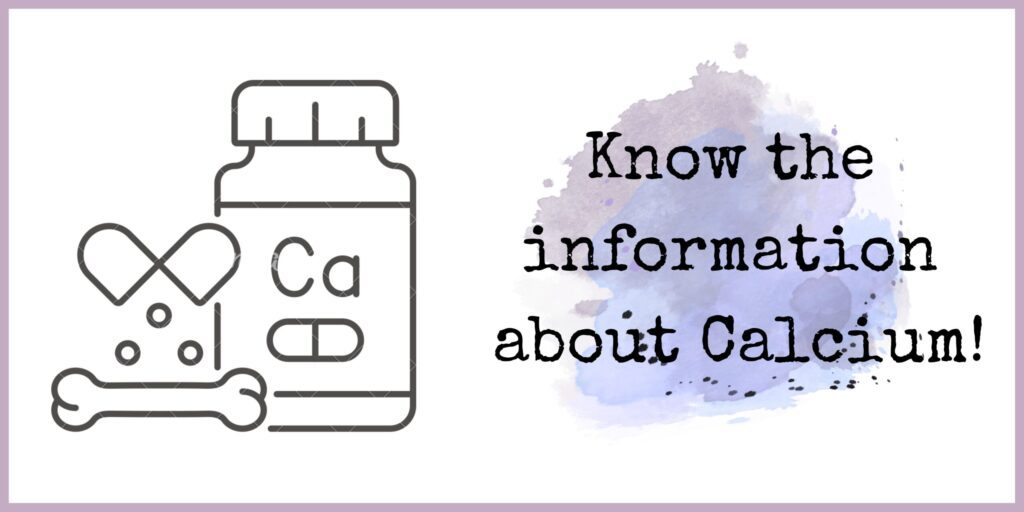Responsibilities of calcium
The responsibilities of calcium in the human body are discussed precisely in this article. Calcium is an important part of the human body and other living things. It is the mineral the human body has the most, which is crucial for keeping bones healthy.
The body works hard to keep the amount of calcium in its blood and tissues stable to keep doing these important everyday things. Calcium is a mineral found naturally in a wide range of foods, and some food manufacturers add it to their products. Additionally, supplements are available in the market.
Calcium is a mineral that people need to build and keep healthy bones. The bones and teeth make up 99 percent of the calcium in the body. It is also very important for keeping the brain and the rest of the body parts healthily communicating with one other.
People need calcium, but they also need vitamin D, making it easier for the body to absorb calcium. You can get vitamin D from being in the sun, consuming fish oil, or eating fortified dairy products.
Two crucial hormones
Most of the time, two hormones control how much calcium is in the blood. They are,
- Calcitonin and
- the parathyroid hormone.
The parathyroid hormone is made by the four parathyroid glands that can be seen in the neck around the thyroid gland. When the calcium level in the blood decreases, the parathyroid glands release more parathyroid hormone. When there is more calcium in the blood, the parathyroid glands make less of the hormones they normally release.
Some of the functions of the parathyroid hormone are given below:
- It encourages calcium to get out of the bones and into the bloodstream.
- It causes the kidneys to release less calcium in the urine.
- It triggers the digestive system to absorb more calcium.
- It stimulates vitamin D in the kidneys, making it easier for the body to absorb more calcium through the digestive system.
Muscle contraction is an essential function included in the responsibilities of calcium in the human body.
Calcitonin is made by the cells in the thyroid gland. It has a small effect on the amount of calcium in the blood because it stops bones from breaking down.
Calcium levels
The Office of Dietary Supplements (ODS) says that the following amounts of calcium are needed by people:
- 0-to-6-months: 200 milligrammes (mg)
- 7 to 1 year: 260 milligrammes (mg)
- 1–3 years: 700 milligrammes (mg)
- 4–8 years: 1,000 milligrammes (mg)
- 9–18 years: 1,300 milligrammes (mg)
- 19–50 years: 1,000 milligrammes (mg)
- 51–70 years: 1,000 mg for men and 1,200 mg for women.
- 71 years and older: 1,200 milligrammes (mg)
Women who are pregnant or breastfeeding need 1,000–1,300 mg, depending on their age.
Blood clotting and regular heart rhythm are taken care of by the responsibilities of calcium in the human body. Hypocalcemia, or low calcium levels, can be caused by bulimia, anorexia, other eating disorders, and certain lifestyle habits.
Exposure to mercury, too much magnesium in the body, and using laxatives for a long time also trigger hypocalcemia. Some medicines, like chemotherapy and corticosteroids, can be harmful if used for a long time, and you lose calcium.
Some calcium leaves the body through sweat, urine, and poop. Calcium levels in the body may decrease if you eat or do things that help your body do these things.
Calcium-rich foods
People can get calcium from many different kinds of foods and drinks. Here is a list of sources you can trust: Milk, Soy milk, Enriched fruit juices, Yoghurt, Cheese, nuts and seeds, particularly sesame and almonds.
Green leafy vegetables like kale, turnip leaves, and watercress are full of calcium. Another great source of calcium is broccoli. There may be a lot of calcium in legumes and grains.
Spinach and other dark green leafy vegetables are good sources of calcium. On the other hand, they have quite a bit of oxalic acid. Several studies have shown that oxalic acid makes it harder for the body to absorb calcium.
The usual working of several enzymes is regulated by the responsibilities of calcium in the human body. Doctors may ask people who have started menopause, stopped menstruating because of anorexia nervosa or intense exercise, can’t digest lactose or are allergic to cow’s milk, or eat a vegan diet to take more calcium.



